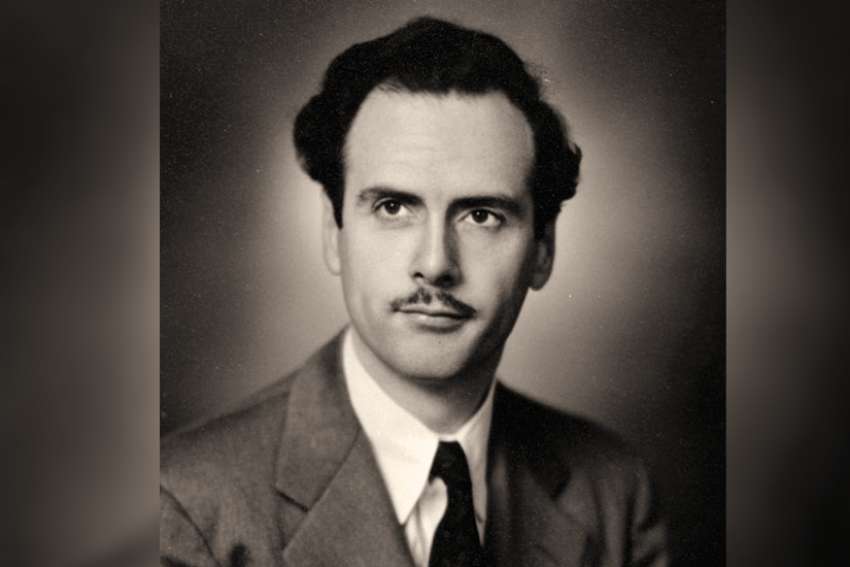You can also listen to this article
Faith can deal with today’s ‘revolutions’
Sr. Helena Burns, FSP
I recently gave a virtual commencement speech at Our Lady Seat of Wisdom College in Barry’s Bay, Ont. Incidentally, OLSW (as it shall henceforth be abbreviated) is one of only two Canadian Catholic colleges or universities on the prestigious Newman Guide of the Cardinal Newman Society.
OLSW is a residential, three-year liberal arts program, known for its orthodoxy. Student life is vibrant and filled with Catholic practices and service to the wider community. I had visited the college pre-pandemic and know several graduates, as well as families with students currently matriculating there. Having gone to a similarly-structured academic setting for some of my own book larnin’ (Magdalen College in New Hampshire), I can attest to the benefits of how this methodology and lifestyle enable one to become a resourceful, well-rounded person and an autodidact, by developing critical thinking skills and deep-diving into humanity’s classical storehouse of wisdom and knowledge.
Not only are young adults prepared at OLSW for their professional lives, they are exposed to the Catholic Church’s long and rich intellectual tradition (that, mystifyingly, seems to be hidden away from the average Catholic!). And it doesn’t hurt that acclaimed author and iconographer Michael O’Brien is OLSW’s Artist and Writer in residence.
I was given two topics for my filmed monologue: Theology of the Body and Media Literacy — basically, to lay out how students can best address the challenges they are facing and will face with regard to both of these crucial areas. These two “solutions” match up rather exactly with the two recent “revolutions” that are undeniable hallmarks of our age: the Sexual Revolution and the Digital Revolution. Each revolution continues to morph, gain dominance and run amok.
The Sexual Revolution’s premises were badly flawed from the get-go and thus need a rather thorough redemption. The Digital Revolution, however, has much potential to be shaped for good and has been used for good in many ways already.
What can our Catholic faith teach us about these two concurrent mammoth cultural shifts? Everything. God is never taken by surprise by human error, human depravity or human ingenuity.
I began by asking the students to ponder the question: “What kind of a world do you want to live in?” with regard to sexuality and digitality. I spoke about the powerful, potentially addicting nature of both; not because they’re intrinsically bad — just the opposite! For example, sex outside marriage is addicting (and devoid of meaning), but sex within marriage is meant to be bonding (and full of heavenly symbolism).
Marshall McLuhan already warned us that “we shape our (media) tools … and then they shape us,” that is, if we let them. We are free to use media technology any way we want, and as a sage young person once told me: “We can probably use media best by using it a little less.”
I rhetorically queried: “Is there a bridge between Theology of the Body and Media Literacy?” “Is there a line of demarcation between actual reality and virtual reality?” The answer, of course, is the body itself. The living, breathing, organic, wonderfully-made, image-of-God human body-person. And even though we are massively playing with — and playing God with — the body today, God will not be mocked … forever (think: abortion, euthanasia, fetal experimentation, children transitioning, depopulation, hybrid animal-humans, microchip implants and the transhumanist melding of humanity with A.I. technology).
There used to be a frequently heard saying: “Knowledge is power. Information is power.” We don’t hear that as much today, unfortunately, because I believe that the devil has convinced us — even within the Catholic Church — that we don’t need too much knowledge, information, wisdom. Don’t spend too much time getting your thinking straight. We just need to do, to act, to feel. When I was growing up, the slogan in the Catholic Church was “religion is caught, not taught,” meaning we didn’t need any solid content to our faith. We just needed to glean and live our faith lives by osmosis, by inspiration, by being around people of faith. (For the record, it’s both.)
I reminded the OLSW grads that they’ve had a real education. I pleaded with them to share the treasures imparted to them, because, no matter what it looks like from the outside, the world is starving for what they have.
I pray that OLSW Class of 2021 will find Theology of the Body and Media Literacy cogently dovetailing in their lives as a balm for the contemporary mind, will and heart.
(Sr. Helena, fsp, is a Daughter of St. Paul. She holds a Masters in Media Literacy Education and studied screenwriting at UCLA. www.HellBurns.com Twitter: @srhelenaburns)


